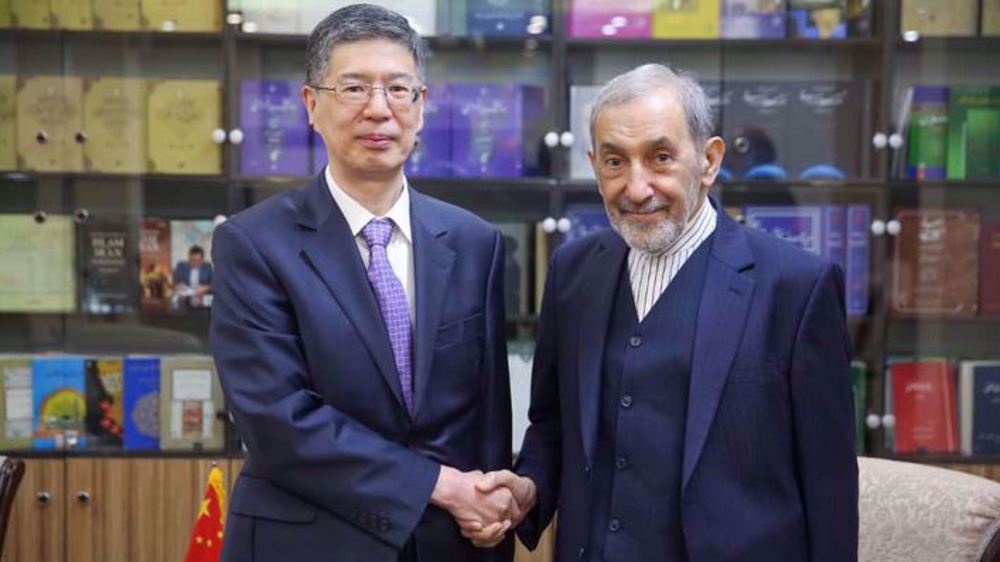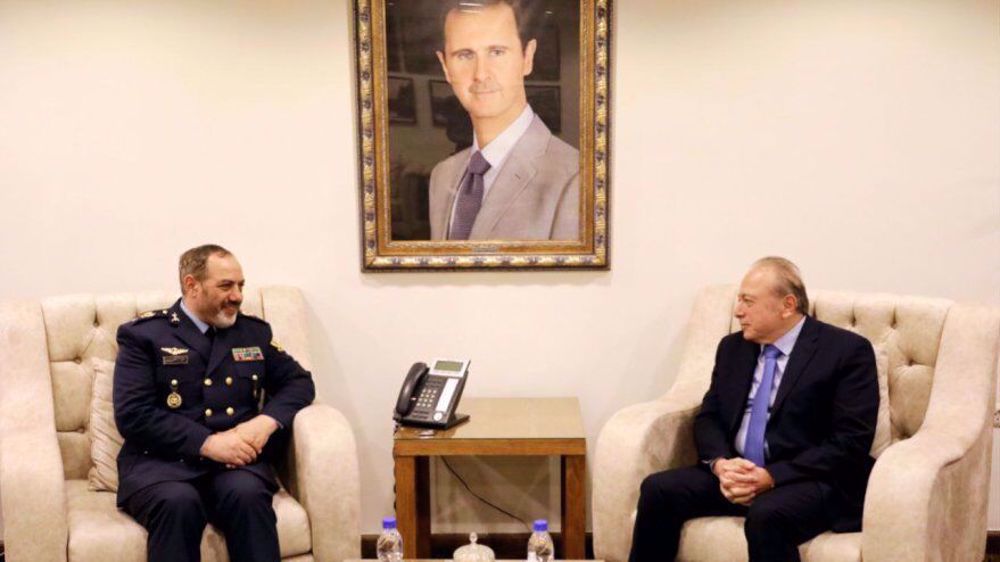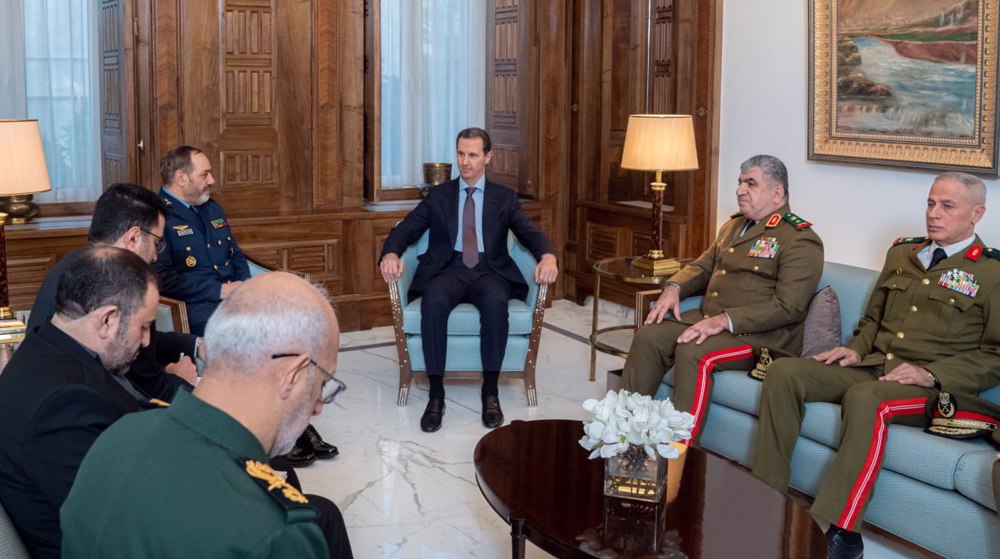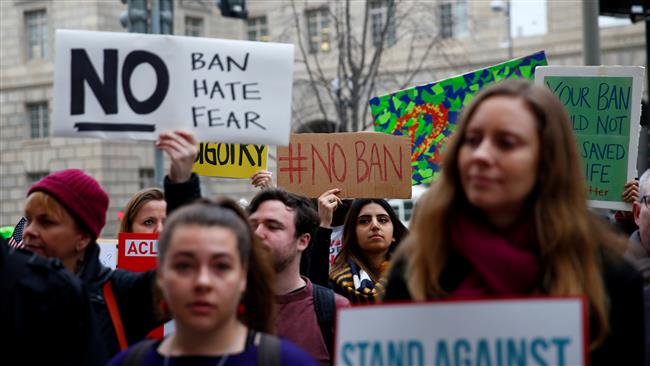US ignoring major perpetrators of terror acts, gives wrong address: Iran
Iran has denounced the recent US Supreme Court ruling allowing President Donald Trump’s contentious Muslim ban to be partly reinstated, saying the United States is turning a blind eye to the real culprits behind acts of terror on its soil.
Iranian Foreign Ministry spokesman Bahram Qassemi said on Wednesday that the court order demonstrates the US administration’s will to discriminate against Muslims and treat them unfairly, contrary to the American statesmen's claims.
“It is regrettable that the US government is ignoring the major perpetrators of the terrorist acts in the US and gives [the world] a wrong address in broad daylight in pursuit of its shortsighted economic and business goals.”
On Monday, America’s highest court said a 90-day ban on visitors from the six Muslim-majority countries of Iran, Libya, Somalia, Sudan, Syria and Yemen, along with a 120-day ban on all refugees, could be enforced against those who lack a “credible claim of a bona fide relationship with a person or entity in the United States.”
Trump hailed the court’s order as “a clear victory for our national security.”

Elsewhere in his comments, Qassemi said that although the majority of Muslims in the US, including the Iranians, are peaceful, respectful of the law, and against extremism and violence, the US statesmen treat them with “pessimism, insult and humiliation.”
He cited Trump’s stance both during the US presidential election campaign and after assuming office as an example of such an insulting treatment.
Tehran would thoroughly investigate the court ruling and take appropriate countermeasures, he added.
On Tuesday Iran’s Foreign Minister Mohammad Javad Zarif criticized the ruling as a “misplaced and misguided policy” and a “regrettable” decision, adding it “would be the greatest gift to extremist groups who would use it as a rallying cry to attract new followers.”
Read more:
The US president initially signed an executive order of the travel ban in January. Several courts, however, described the ban as unconstitutional and put it on hold.
Trump then signed a revised order in early March, excluding Iraq from the initial list of countries whose travelers were barred from the US.
The Muslim ban stirred protests inside the US and abroad, with many arguing that nationals from the countries singled out by Trump have not been involved in terror attacks on US soil.
Resistance movements condemn Israeli killing of Hezbollah spokesman
Biden allows Ukraine to use US missiles to strike inside Russia: Sources
OIC condemns Israel’s war crimes against Palestinians in Gaza
Iran FM slams reported EU plans to impose sanctions on IRISL
VIDEO | Press TV's News Headlines
Lebanon army says Israeli attack kills two soldiers in south
Iran launches renovation project at its main oil export terminal
Trump's re-election will not affect Iran-China strategic ties: Leader’s aide















 This makes it easy to access the Press TV website
This makes it easy to access the Press TV website